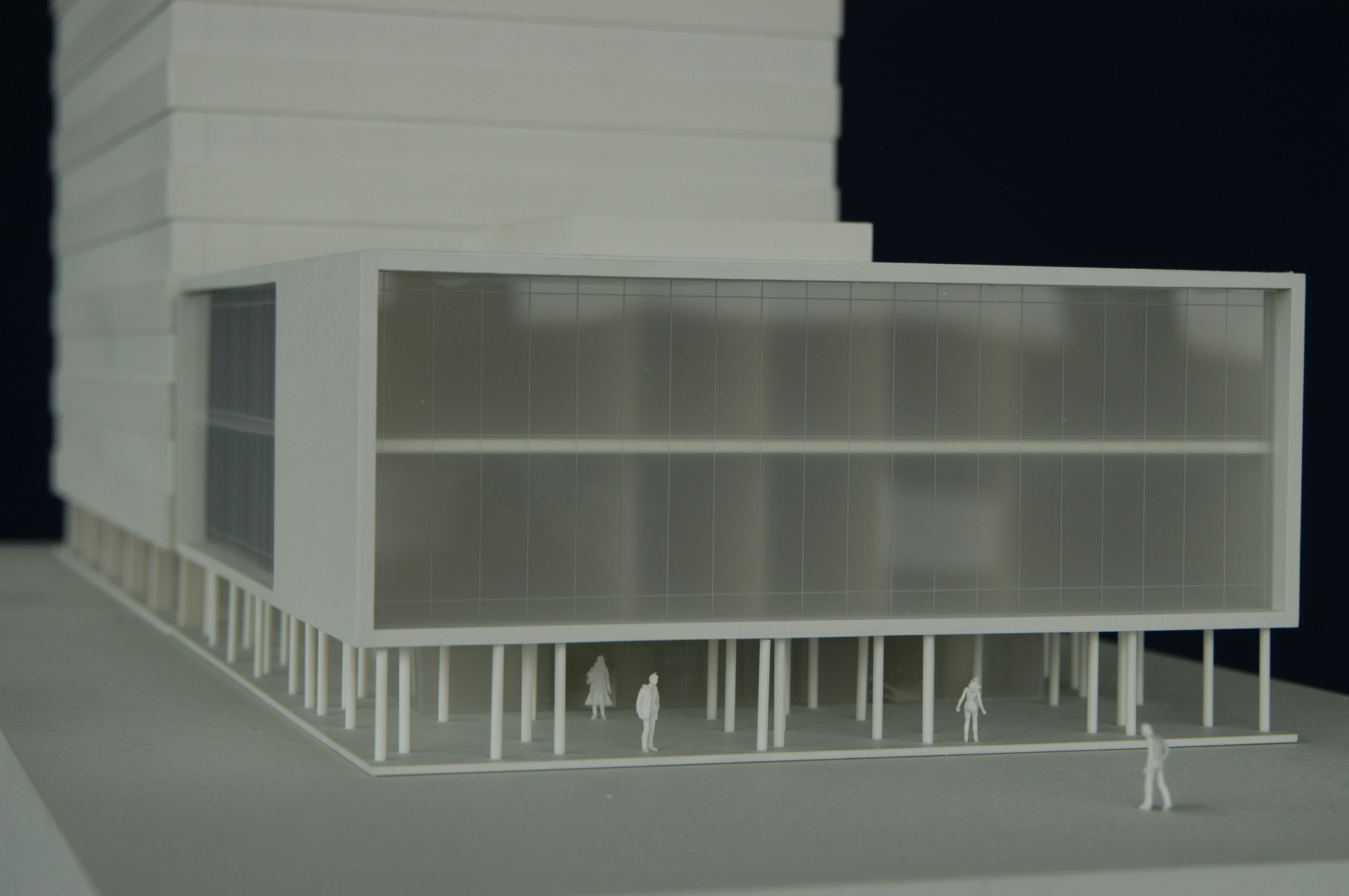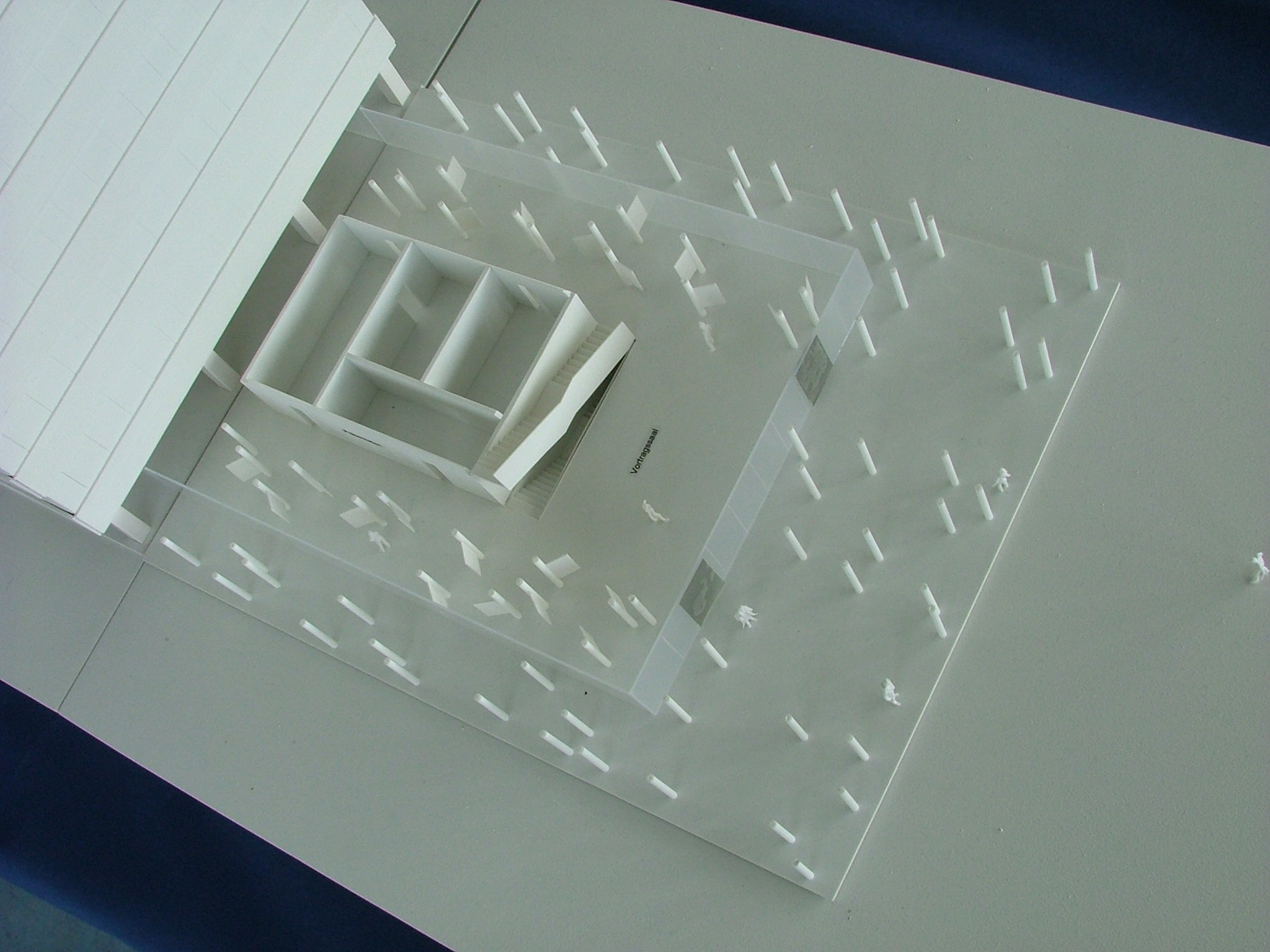History

|
June 2009 |
The DFG-Center for Functional Nanostructures (CFN) at the Universität Karlsruhe (TH) is granted a second renewal following an evaluation by the Deutsche Forschungsgemeinschaft (DFG, German Research Foundation). For its third 4-year funding period the CFN will receive about 5 million euro annually plus additional support from the State of Baden-Württemberg and the Universität Karlsruhe (TH). |
| October 2006 | Following a highly competitive evaluation process, the CFN is granted additional funding within the framework of the German government's Excellence Initiative. As a cluster of excellence it will receive an extra 1.5 million euro annually for a period of five years. |
| April 2006 | Excavations commence for the construction of the new CFN building next to the Physics Building. On 1.200 square meter of floor space the new structure will house major equipment, research laboratories and central services. The building, which will be completed by the end of 2008, will cost 8 million euro, 50 percent of which are covered by the Federal Government. The State of Baden-Württemberg contributes 3.5 million euro, and the Universität Karlsruhe (TH) 0.5 million euro. |
| July 2005 | After four years of existence the DFG-Center for Functional Nanostructures (CFN) at the Universität Karlsruhe (TH) successfully passes its first round of evaluation by the Deutsche Forschungsgemeinschaft (DFG, German Research Foundation), and is granted 5 million euro annually for a second 4-year period. Additional funds are allocated by the State of Baden-Württemberg and the Universität Karlsruhe (TH). |
| August 2004 | The State of Baden-Württemberg grants 3.5 million euro to the Universität Karlsruhe (TH) for a new building to house central facilities and administrative offices of the CFN. |
| June 2002 | Six research institutions in Baden-Württemberg establish the state-wide network "Funktionelle Nanostrukturen" (Functional Nanostructures), with office at the Universität Karlsruhe (TH). |
| July 1, 2001 | The DFG-Center for Functional Nanostructures (CFN) at the Universität Karlsruhe (TH) is inaugurated. The CFN is one of the three finalists selected by the Deutsche Forschungsgemeinschaft from a short-list of seven initiatives – selected from 80 applications total – to receive funding of about 5 million euro annually for up to 12 years. |
|
July 1999 |
The nation-wide network "NanoMat – Materialien für die Nanotechnologie" (NanoMat – Materials for Nanotechnologie), which was initiated by the Forschungszentrum Karlsruhe (Research Center Karlsruhe), officially takes up its activities. |
| June 1998 | The Institute for Nanotechnology (INT) at the Forschungszentrum Karlsruhe (Research Center Karlsruhe) is founded. |
| June 1998 | The Institute for Nanotechnology (now the Center for Applied Nanotechnology (CAN)) is established at the Universität Karlsruhe (TH). |
| January 1998 | The State of Baden-Württemberg launches its state-wide emphasis program "Nanotechnology". |
| 1998 | The DFG-Collaborative Research Center 551 "Carbon from the gas phase: elementary reactions, structures, materials" is established at the Universität Karlsruhe (TH). |
| January 1997 | The Universität Karlsruhe (TH) receives support from the DFG to set up the Research Training Group 284 "Collective phenomena in solids". |
| January 1992 | The Deutsche Forschungsgemeinschaft (DFG, German Research Foundation) awards a grant to the Universität Karlsruhe (TH) for the Collaborative Research Center 195 "Localization of electrons in microscopic and macroscopic systems". |
 |
 |